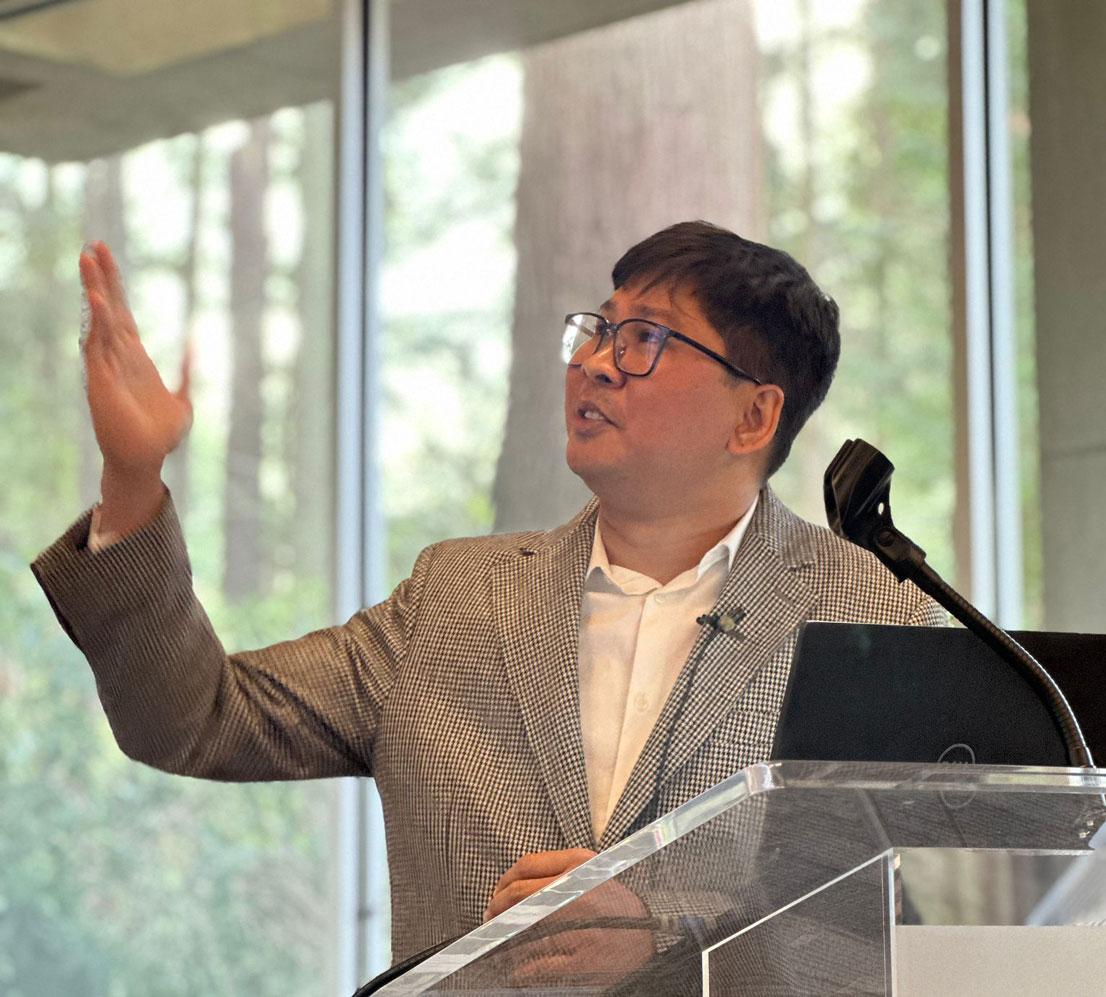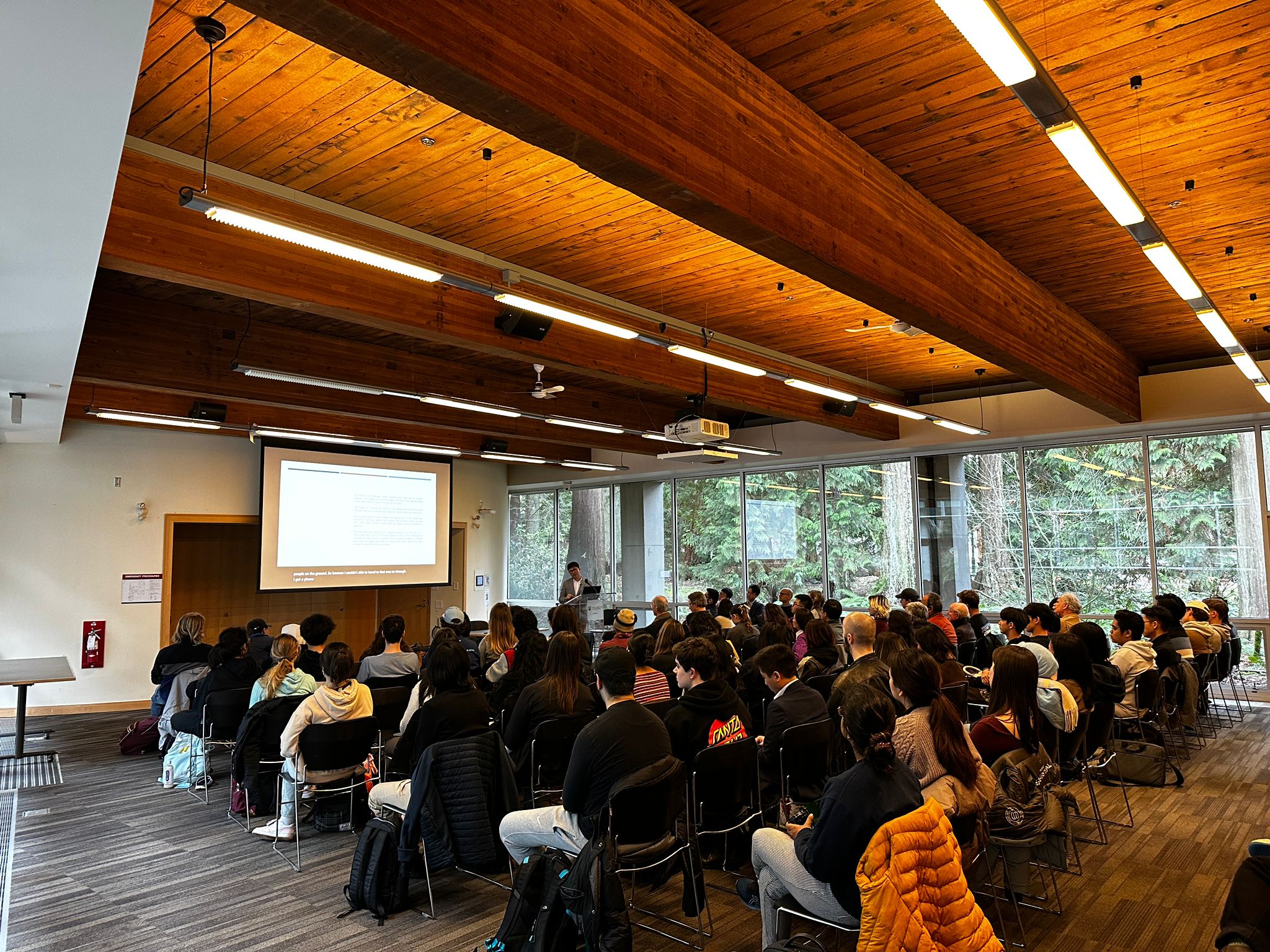

“We didn’t dare to talk too loudly for fear that the police may hear.”Wa LoneReuters Journalist and Pultizer Prize winner
On February 1st, 2024 the Centre for Southeast Asia Research at SPPGA and the UBC Myanmar Initiative hosted internationally acclaimed journalist and Pulitzer Prize winner Wa Lone for a talk titled “Reporting on Mass Atrocities: How can Myanmar Remain on the Radar?” Wa Lone’s reporting, awarded the UNESCO/Guillermo Cano World Press Freedom Prize, played a pivotal role in raising global awareness about Myanmar state’s violence and the Rohingya genocide.
Disguising himself as a local, Wa Lone took reporting trips to the Rakhine State of Myanmar in 2016 and 2017 despite state restrictions on the entry of foreign journalists. “I mostly talked to students and young people since I felt that they were not as strongly influenced by political biases,” he shared. He also cited conversations with motorbike-taxi drivers as valuable sources for forming a clearer picture of the ruthless measures employed in the Burmese government’s “clearance operations.”
In addition to collecting firsthand accounts on the ground, Wa Lone also captured important photo and video evidence of the genocide in villages of the Rakhine state at great risk to his own personal safety. He described the harrowing experience of defying military censorship: “We didn’t dare to talk too loudly for fear that the police may hear. Crawling into the bushes in the mountains we saw in the area a shallow grave with bones sticking out.”
The evidence gathered by Wa Lone and his colleagues shed light on the violence, murder, and ethnic cleansing that the Burmese state had been attempting to deny—but also resulted in the incarceration of many including Lone himself. He spent more than 500 days in prison, and spoke of fellow journalists who remain in prison for reporting on the genocide. Wa Lone stressed that these devastating circumstances have essentially crushed press freedom in Myanmar and placed the country’s inhabitants at risk of losing any visibility to the outside world.


Wa Lone speaking at The Place of Many Trees, Liu Institute
Concluding his presentation, Wa Lone stressed that the violence in Myanmar was far from over. Civilian deaths are on the rise in Burma with approximately 4474 lives having been taken since the military take-over in 2021. The continuing effects of the genocide are also glaringly visible through mass displacement with thousands of people still unable to return their homes.
The portrait of brutality painted by Wa Lone’s journalism serves as a call to action to the international community to keep informed, amplify voices uncovering mass violence, and raise global attention about such atrocities—wherever they may be occurring.
Read more about Wa Lone’s work here
Learn more about the Myanmar Initiative here at the School of Public Policy and Global Affairs.


